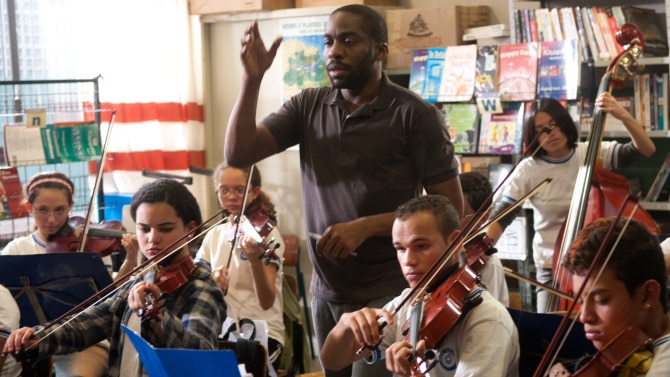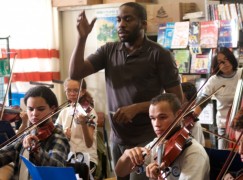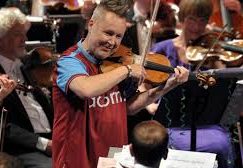Is deception the best way to get kids to practise?
mainDr Anita Collins seems to be a very nice person as music teachers go, but her ritualisation of music practice is based on various forms of deception. Is that the best way to immerse a child in the love of music?
What do you think?







I do not believe in using deception in any way for any reason. Gregg Goodhart wrote a very good article in SmartMusic named,”The Neuroscience of Deliberate Practice” in which he discusses what the brain is actually doing while we are practicing our instruments. This article is based upon the research on the neuroanatomical and neurophysiological evidence about skill based adaptations done at Cambridge and the findings published in 2006. Understanding what their brains look like as they aquire new information, categorize that information and then start to use that same information is very motivating to students. Goodhart goes on to explain what deliberate practice is and how to use it to increase your skills exponentially is also extremely motivating.
We do music because it is beautiful and we want to be part of that experience of creating that beauty. Playing Mahler, Brahms, Berlioz or St Saens requires a very high level of musicianship and skill. Giving students the ability to hear, see and then create this for themselves is what a teacher is for. We can only save them time in their quest for skill acquisition by keeping them from making mistakes as much as possible. Helping them to understand how their brains aquire knowledge and then learning how to use that knowledge through Deliberate Practice is the best and honest way to teach our students.
I’m hard put to see the five-minute rule as deception, nor the cupboard idea, though that one I should think impracticable, to say the least. Bribes she mentions lightheartedly, and both she and the interviewer agree that most parents do that anyway. I suspect they do and think it unwise, though again not deceptive. Bribes much depend upon what stage the child is at. In early days, it might work without detriment. The later the stage, if bribes are still necessary one must consider the possibility that the child is simply not interested — in music, in learning an instrument or both — and at that point bribing becomes ‘forcing’, in the culinary sense, and is wrong indeed as well as counterproductive. But “various forms of deception”? No, quite OTT.
The phrase “as music teachers go” did make me smile, for while I’ve never seen any sign that NL had music teachers in any field, I must now suspect that he did, and that it didn’t go well for him. I don’t, however, think that tiny slur justified.
Yes, those all sound like great methods to establish a practice routine. And what exactly is deceptive about anything she says?
It all sounded pretty benign to me. “Reverse psychology” it used to be called.
Children are totally venal and self-focused and inexperienced at making good choices. Clever parents are able exploit that for useful goals and purposes.
Something to ask ourselves… if the parent didn’t “trick” the child into practicing her violin (for five minutes!), what would the child be doing with the time instead that would be better?
Probably nothing. It is a very rare child whose cure for cancer was sabotaged because they had to practice the piano (or gymnastics, or mowing the lawn or whatever…)
I heard no deception, just suggestions for how to get kids to do things. If you want a child to practice for 5 minutes, saying “You’re not allowed to practice for more than 5 minutes” can be the perfect way to get them to do it, depending on the child.
Looks like an attempt to generate outrage by calling reverse psychology deception. We’re living in the age of outrage. I’m sick of it. It’s outrageous!
I also don’t see anything deceptive here. I’m a pro musician and have a 5 year old that does suzuki piano and the things she said that work are spot on. More like ways to excite a kid or help them to be consistent. Nothing deceptive in there at all!